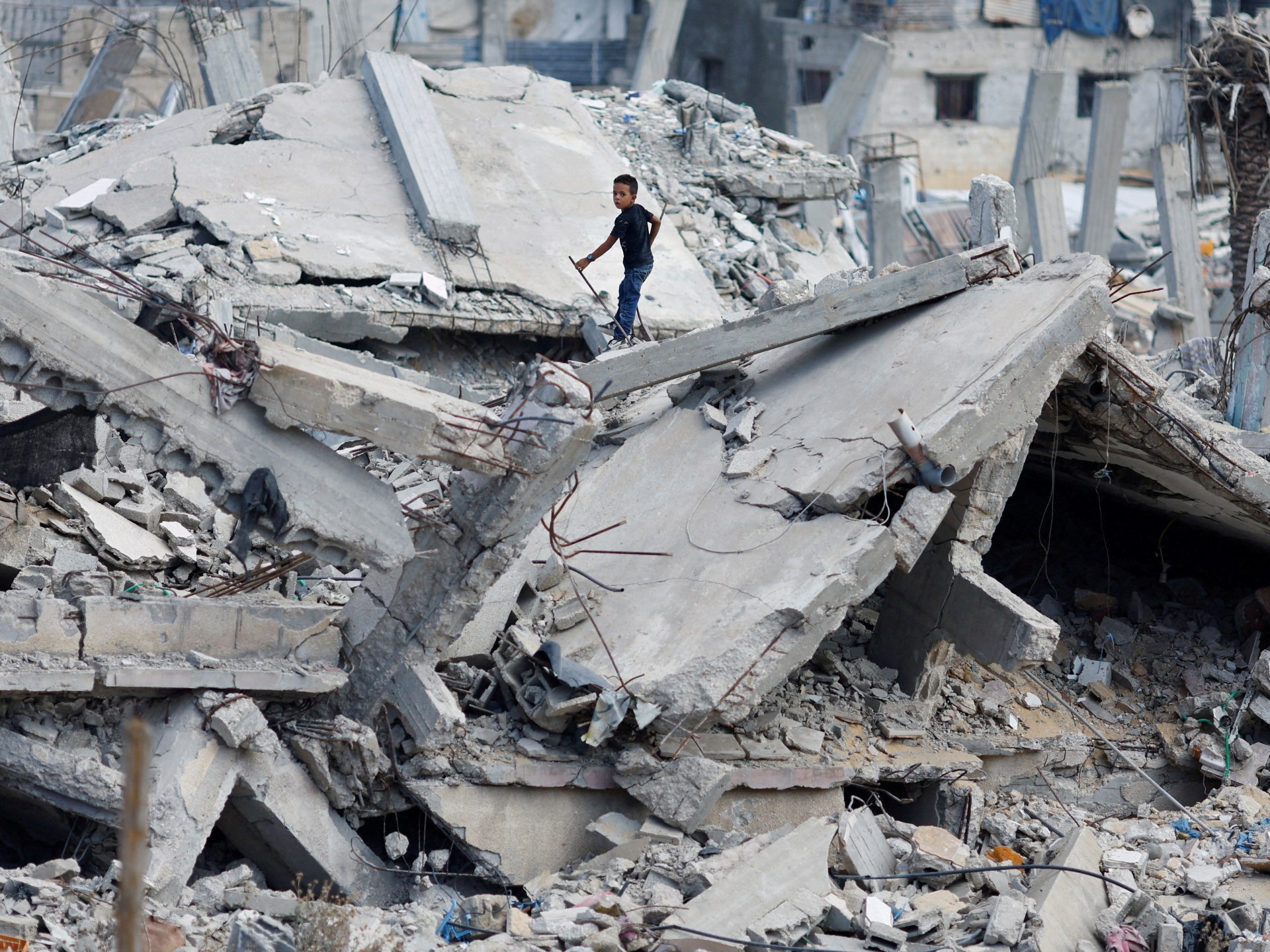My grandfather, Hamdi, was just eight when his family fled Bir al-Sabaa, a town in southern Palestine once known for its fertile land and agricultural life. His father, Abdelraouf, was a farmer who owned nearly 1,000 dunams of land and cultivated wheat, selling the harvest to merchants in Gaza. The family had a happy and comfortable life.
In October 1948, several months after European-Zionist forces had proclaimed the creation of Israel, Israeli troops attacked Bir al-Sabaa, forcing thousands of Palestinians, including my grandfather’s family, to flee under the threat of being massacred.
“We fled Bir al-Sabaa when the militias arrived,” my grandfather often told me. “My father thought it would only be temporary. We left our home, land and animals behind, thinking we’d return. But that never happened.”
Hamdi’s family fled on foot and by horse-drawn cart. What they thought would be a few weeks of displacement turned into permanent exile. Just like 700,000 other Palestinians, they were survivors of what we now call the Nakba.
Hamdi’s family found refuge in Gaza, where they stayed in temporary shelters and with extended family. Relatives helped them buy a small plot of land in the Tuffah neighbourhood of Gaza, just 70km (40 miles) from their home in Bir al-Sabaa, which the Israelis renamed Beersheba. Hamdi’s family struggled to rebuild their life.
Seventy-five years after my grandfather’s experience of painful displacement, sorrow, and a struggle to survive, my family and I fell victim to the Nakba as well.
At 4am on October 13, 2023, my mother’s phone rang. We were all sleeping in one room of our home in the Remal neighbourhood of Gaza City, trying to find comfort from the relentless sound of drones and warplanes overhead. The phone woke us all up.
It was a prerecorded message from the Israeli military warning us that our home was in a danger zone, and we were being ordered to move south. Fear gripped us as we ran outside, only to see Israeli leaflets scattered everywhere with the same warning. We had no choice but to pack some clothes and some bedding and flee.
It was not the first time we had been forced to leave our home. Since I was 12, I have experienced the horror of Israeli assaults on Gaza, which have repeatedly forced us to flee and live in fear and uncertainty.
Since I was 12, I have learned to recognise the distinct sounds of bombs, F-16 jets, Apache helicopters and drones. I have known intimately the terror they bring.
Previous displacements were temporary, and we had hoped this one would be, too – just like my grandfather believed that his family would eventually return.
But there is no return in sight now. Our home was badly damaged by an Israeli tank. The upper floor was burned, and a whole wall on the lower floor is missing. All our belongings were destroyed.
The handbag with some clothes I took on October 13 is all that remains of my possessions.
We headed to az-Zawayda in the central Gaza Strip to stay with relatives. Along the way, we saw thousands of other Palestinians dragging bags of clothes and searching for safety.
From our temporary shelter, I saw the pain of exile in the crowded corners of every room. We shared a flat with 47 other people, bound by the chilling fear that nowhere was safe. We spent two months in that crowded flat, near Salah al-Din Street. Ultimately, constant explosions forced us to relocate to another house in the area.
On January 5, the sharp crack of sniper fire and gunshots intensified. Then came the thunderous blast of artillery and bombs. We gathered what little we had and fled to Deir el-Balah.
We were forced to live in an eight-person tent for three months before moving into a small, poorly insulated room on a plot of land owned by a friend. This is where we are spending the winter. Rain seeps through nylon windows, and the cold is unbearable, leaving us sleepless most nights.
We have struggled to secure the most basic of needs – food and water. For the past two days, we were forced to survive on contaminated water and a single loaf of bread. Starvation has drained our strength and hope.
I now understand the Nakba of 1948 in a way I never did before. It is the story of my grandparents repeating within our generation, but within the confines of Gaza. And to be honest, it feels even worse than the Nakba of 1948. The weapons used today are far more advanced, causing unprecedented destruction and mass death and injury – something my grandparents could never have imagined in 1948.
The pain is not just physical. It is also psychological. Witnessing the unthinkable – the constant fear, the loss of loved ones, the struggle for basic survival – has taken an enormous toll. During sleepless nights, the deafening roar of rockets and the memories of dismembered bodies and ruined homes haunt us. I look at the members of my family and I see how much their faces have changed; their hollow eyes and silent tears speak volumes. When I walk in the street, I see communities known for their generosity and solidarity shattered by loss and destruction.
It’s clear that Israel’s goal is to force Palestinians out of historical Palestine by any means. The fear of being expelled from Gaza is overwhelming. With homes reduced to rubble and entire neighbourhoods wiped out, it feels like our exile may be imminent. I never imagined leaving my home, but after losing everything, Gaza no longer feels like a place to live – only a graveyard of despair and loss.
There is no Palestinian that has not been affected by displacement, by the fear of losing the homeland forever. The Nakba is truly the unending story of Palestine.
The views expressed in this article are the author’s own and do not necessarily reflect Al Jazeera’s editorial stance.
